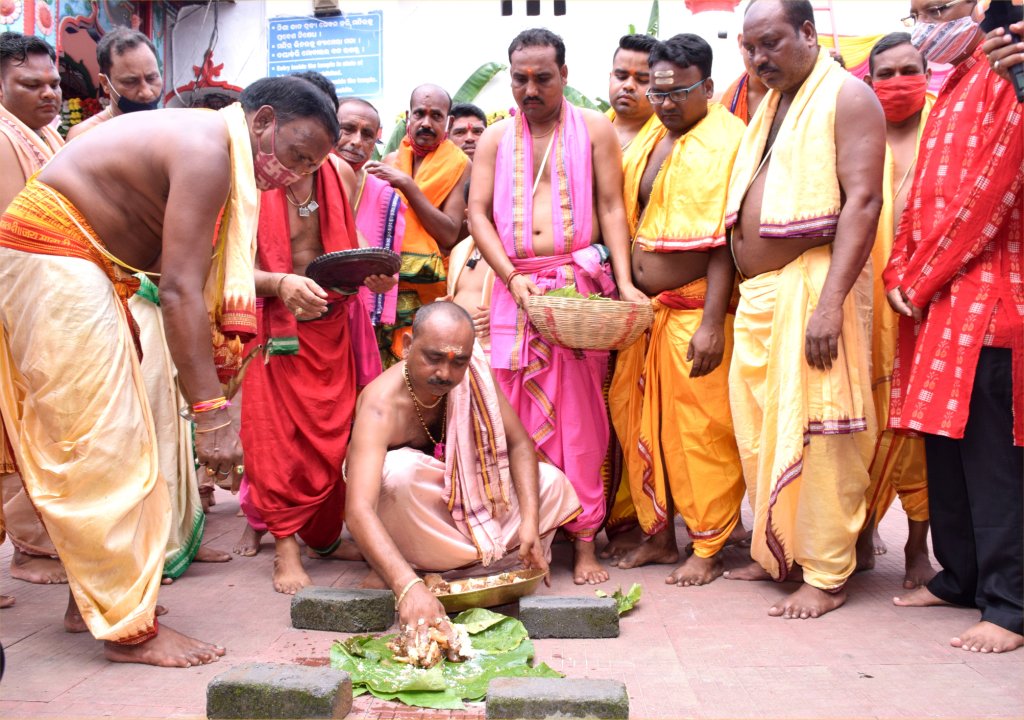Sambalpur: People of Odisha celebrated Nuakhai with fervour Saturday amid the Covid-19 pandemic.
Nuakhai, an agrarian festival mostly celebrated in western Odisha, has turned into a mass fiesta across the state over the years. On Nuakhai, people welcome the new rice of the season.
Even as traditional rituals were followed, the festivities were subdued this year due to the pandemic.
People from western Odisha now living outside the state also celebrated the festival at their locations amid the heartbreak of not being able to return home due to different restrictions amid the pandemic.
Notable celebrations happened in Bengaluru, Bhopal, Chennai, Hyderabad, Kolkata and Mumbai.
The colourful festival, marked by people wearing outfits made of Sambalpuri fabric, is celebrated a day after Ganesh Chaturthi.
Sambalpuri music is also an integral part of the festival as the young men and women dance to the beats of ‘dul-duli’ — a drum.
Families, wearing new clothes, get together on this day to offer prayers to goddess Samaleswari and eat delicacies made of the newly-harvested crop. The younger members of the family seek blessings of the elder ones — ‘Nuakhai Juhar’.
Prime Minister Narendra Modi greeted the people on the occasion.
In a tweet, he said, “Nuakhai Juhar! Greetings to everyone on this auspicious occasion. On Nuakhai we laud the outstanding efforts of our industrious farmers and their role in nation building. I pray for everyone’s good health and well-being.”
Governor Ganeshi Lal also greeted the people on the occasion.
Chief Minister Naveen Patnaik said Nuakhai is not only a festival, but it is the identity of the state’s art, culture and tradition.
“I pray to Maa Samaleswari that may you all have a happy and prosperous life,” said Patnaik through a video message.
He also appealed to the people to follow COVID protocols while celebrating the festival.
This year, ‘nabanna’ (new rice) was offered to the goddess between 10.15 am and 10.25 am, as per the ‘lagna’ for the ritual fixed by the Pundit Mahasabha.
According to the decision taken by the authorities, devotees were allowed to visit Samaleswari Temple after the ‘nabanna’ ritual from 12 pm to 5.30 pm.
The origins of the festival date back to the Vedic ages, but the early records of its celebrations point to the 12th century when Chauvan Raja Ramai Deo of Patanagarh identified agriculture as an important means to maintain the cohesiveness of a societal arrangement.
PTI
